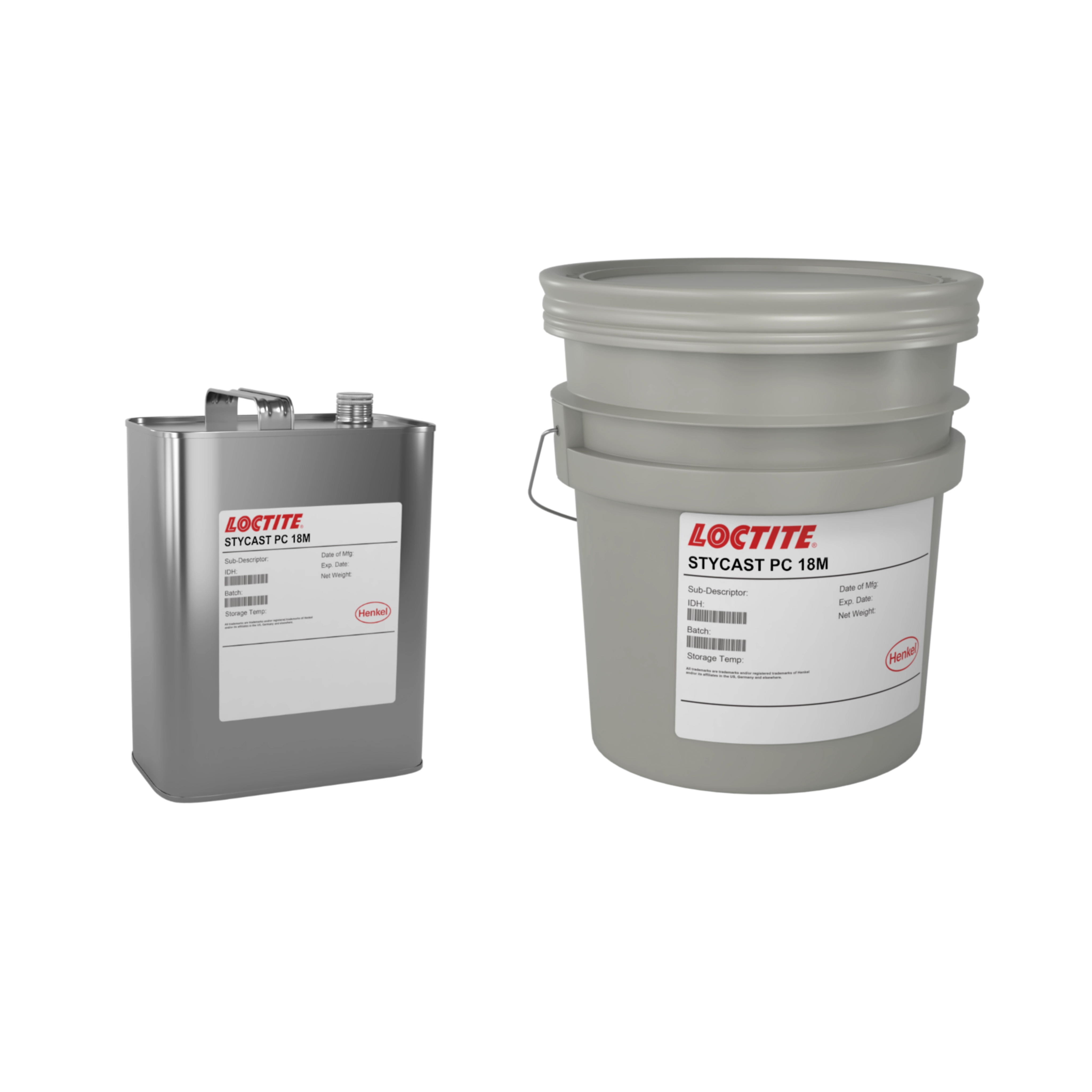LOCTITE STYCAST PC18M
Harmonization Code : 3909.50 | Amino-resins, phenolic resins and polyurethanes, in primary forms
Main features
- Conformal Coating
- For environmental and moisture protection
- Room temperature cure
Product Description
LOCTITE STYCAST PC 18M is a solvent-based one-component urethane coating that may be cured at room temperature. This material retains its light color after long exposure to elements and provides environmental and moisture protection.
LOCTITE STYCAST PC 18M is a reworkable, solvent-resistant coating that is fluorescent under UV light. It displays no cracking and exhibits superior toughness and abrasion resistance. It is typically used as a PCB conformal coating and can operate continuously up to 110°C.
Advantages of Loctite Stycast PC 18M
- Reworkable
- Solvent resistant
- Room temperature cure
- superior toughness and abrasion resistance
- resistant to discoloration
Cure Schedule
- 2 hours @ 60°C , in an oven
Boards must be air-dried 30 to 45 minutes before curing
Technical Specifications
| General Properties | |
| Solids | 50 % |
| Specific Gravity Specific Gravity Specific gravity (SG) is the ratio of the density of a substance to the density of a reference substance; equivalently, it is the ratio of the mass of a substance to the mass of a reference substance for the same given volume. For liquids, the reference substance is almost always water (1), while for gases, it is air (1.18) at room temperature. Specific gravity is unitless. | 1.01 |
| Thermal Properties | |
| Flash Point Flash Point The flashpoint of a solvent is the lowest possible temperature at which it can vaporize to form an ignitable vapor. Flashpoint is often confused with “autoignition temperature”, which is the temperature at which a solvent ignites without an ignition source. | 32 °C |
| Electrical Properties | |
| Dielectric Strength Dielectric Strength Dielectric strength is measured in kV per mm and is calculated by the Breakdown voltage divided by the thickness of the tested material. Those two properties go hand in hand and while Breakdown voltage is always thickness dependent, dielectric strength is a general material property. As an example, the dielectric strength of Polyimide is 236 kV/mm. If we place 1mm of Polyimide between two electrodes, it will act as an insulator until the voltage between the electrodes reaches 236 kV. At this point it will start acting as a good conductor, causing sparks, potential punctures and current flow. | 30 kV/mm |
| Volume Resistivity Volume Resistivity Volume resistivity, also called volume resistance, bulk resistance or bulk resistivity is a thickness dependent measurement of the resistivity of a material perpendicular to the plane of the surface. | 2x10^13 Ohms⋅cm |
| Physical Properties | |
| Viscosity Viscosity Viscosity is a measurement of a fluid’s resistance to flow. Viscosity is commonly measured in centiPoise (cP). One cP is defined as the viscosity of water and all other viscosities are derived from this base. MPa is another common unit with a 1:1 conversion to cP. A product like honey would have a much higher viscosity -around 10,000 cPs- compared to water. As a result, honey would flow much slower out of a tipped glass than water would. The viscosity of a material can be decreased with an increase in temperature in order to better suit an application | 350 mPa.s |



